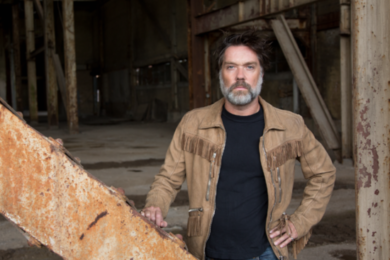Since the very beginning of his career, one of the many tributes that have been showered upon Rufus Wainwright is that his music is ‘timeless’: that he could have found success in any era; that he has never followed or reflected any transient fashion or zeitgeist. His seven pop albums float between myriad genres (opera, classical, musicals, balladry, folk, 1970s singer-songwriters, 1980s pop and so on and so on), whilst steadfastly refusing to be categorised as anything except the unique musical aesthetic crafted by their maker – he of the outrageous talent, unrestrained ambition and immovable self-confidence.
His two operas, Prima Donna and Hadrian, also illustrate Wainwright’s disregard for courting mainstream popularity, or taking the comparatively easy option of producing regular pop albums by rote (his forthcoming eighth album, Unfollow the Rules, brings to an end a period of eight years without a genuine pop record). One is reminded of the Orson Welles quote: "I passionately hate the idea of being with it, I think an artist has always to be out of step with his time." Wainwright is not exactly out of step with his time, but we are hardly in the golden age of opera. Or even, for that matter, the singer-songwriter tradition.
His Baker’s Dozen reflects the catholic tastes and unprejudiced listening life that formed him. "I have very eclectic tastes in music," says Wainwright on a grim winter’s day in London, "but at the same time very definitive ones, meaning that whatever I like has to be really good, and it doesn’t matter what it is style-wise. And having been brought up in a musical family where we really would breathe, eat, sleep, work and argue music, there was a lot to sift through. And I think I have some taste."
Wainwright has, famously, always placed his personal history at the heart of his music: his parents and siblings, his sexuality, his love affairs, his close friends, his period as an addict, and even very specific incidents, as with Want One‘s ‘Dinner At Eight’, about a rupture with his father, Loudon Wainwright III. Similarly, these 13 albums offer a chronicle of his life. Through these records we cover, among other things, his adolescent obsession with opera, trying and failing to achieve success in New York in the 1990s, the loss of his mother, Kate McGarrigle, and the challenge of how to reinvent himself as he approaches middle age.
Followers of Wainwright’s career may be surprised by the artists who have not made the list. Given how prominent the music of family members has been in his life, it is notable he has chosen only one album by any of them here.
"Oh I suppose I could have put them all in there, the ones that I adore, but I was aware that we are in a day and age of nepotism, and I didn’t want to fall into that ring, you know with the Trumps and stuff – so I chose one."
Others whom might have been expected to make the cut are Jeff Buckley – subject of the elegiac ‘Memphis Skyline’ from Want Two – and Judy Garland. Neither did.
As might be expected, his list straddles the pop and classical worlds.
"I’m very inspired by both genres and am passionate about working in both sectors," he says. "But one of the by-products of that relationship is that I miss the other party. When I’m in opera I miss pop and when I’m in pop I miss opera, which is actually a really good device to encourage me to keep going. And also I just naturally bring elements of one to the other, which I strongly believe is needed. Opera needs more pop; pop needs more opera. I’m a good ambassador."
Unfollow the Rules comes just over a year on from his one-off release ‘Sword Of Damocles’, his cutting salvo aimed at Donald Trump. The track will not appear on the new album – in part, he says, "to lighten the load and make it less barbarous." Nevertheless, he admits that commentary on contemporary politics and culture does have its place on tracks such as ‘Hatred’ and the lead single ‘Trouble in Paradise’. The album was recorded in Los Angeles with the veteran producer (and newly initiated member of Crowded House), Mitchell Froom.
"Mitchell’s fantastic. I met with a few producers, but when I met Mitchell we immediately started just working on the project. Within the first 10 minutes if you start coming up with ideas or melodies or concepts, then you know you’ve made the right decision. And he was perfect for what I wanted to accomplish, because on one hand he knows the history of my career and also the Los Angeles scene over the years, but he was also someone I’d never worked with, and there was discovery on both sides.
"I particularly adore his work with Randy Newman, especially Randy’s last album that they made together, Dark Matter."
Newman would be another who might feel unlucky not to have been included in Wainwright’s Baker’s Dozen. Those who have been have certainly earned their place, given the exacting standards and ethereal sensibilities of the man in question.
Rufus Wainwright’s new album Unfollow The Rules is out on BMG on 24th April. Click the image below to begin reading his Baker’s Dozen selection



